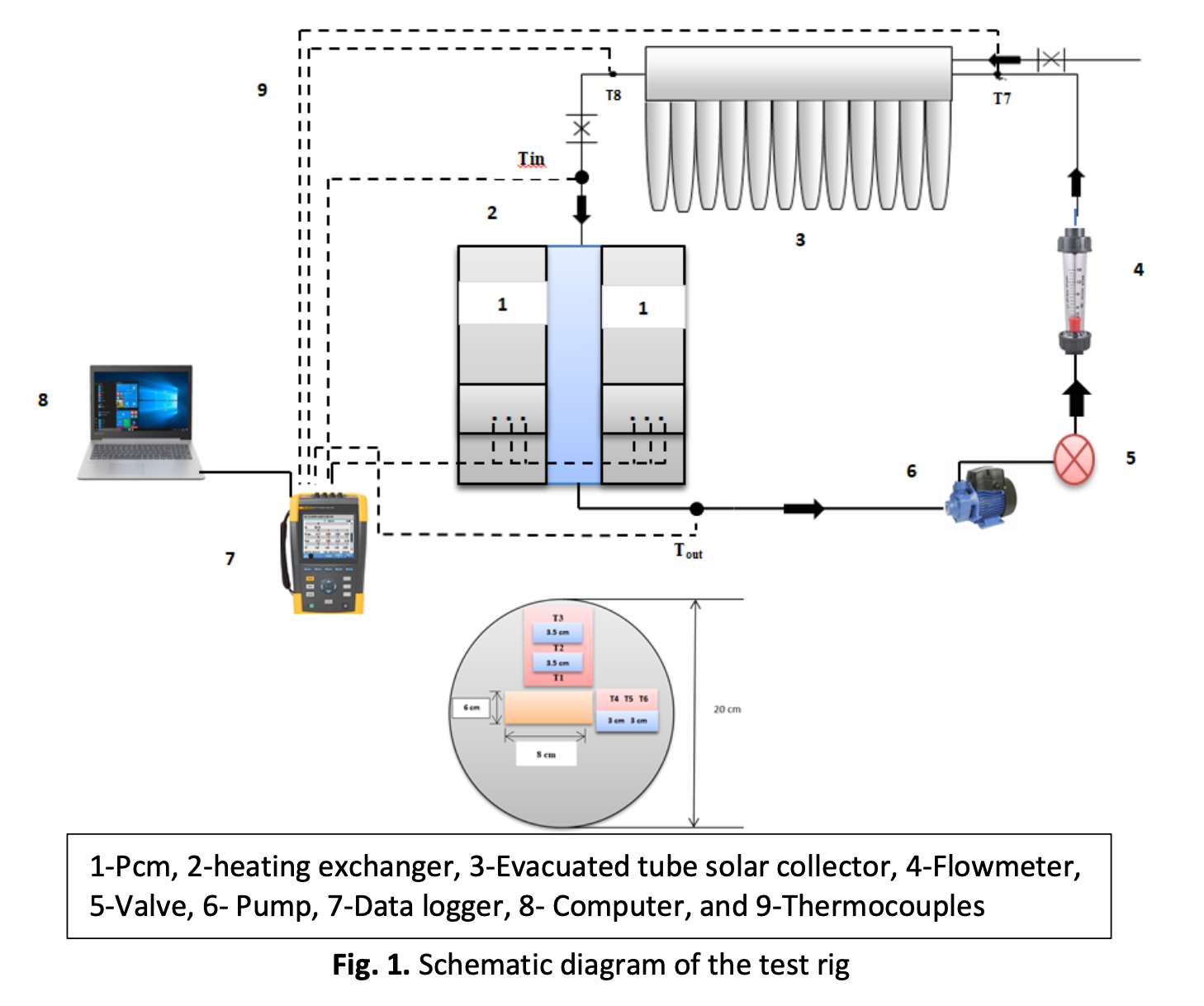Empirical Investigation of Thermal Features of Phase Change Material as Thermal Storage System
DOI:
https://doi.org/10.37934/arfmts.111.2.154169Keywords:
Thermal storage system, renewable energy from sun, PCM, paraffin, tube and shell, heating exchangerAbstract
This paper presents an empirical investigation of the melting processes of phase change material (PCM) in a tube and shell heating exchanger utilizing solar thermal energy. The experiments were conducted outdoors in Al-Mussaib city, Babylon, Iraq (Lat 32.5° North, long 44.3° East), utilizing a north-south (N-S) collector oriented at a tilt angle of 32.5° from the horizontal. This work utilized pure Iraqi black paraffin with 12 kg as PCM. The main empirical rig involves a vacuum tube solar collector (VTSC) utilizing a tube and shell heating exchanger to melt PCM in the shell regime. Different rates of water flow inside the internal heating exchanger's tube, namely (3.5, 5, and 8.5 L/m), were utilized for each season from August 2022 to January 2023. The empirical findings concluded that the internal tube inlet and surrounding temps significantly influence the melting process compared to the rates of water flow. It was found that the melting process of PCM needs about (3 to 4) hours in the summer season. Still, winter needs a longer time, about 14 to 16 hours. Increasing surrounding temp and solar radiation reduces the melting time of phase-change material. The findings of the present work were compared with the earlier investigations and agree with increasing the present work by 23.5 %. The findings from the present study are of practical importance for industries requiring storage materials to improve thermal storage system performance.
Downloads

































